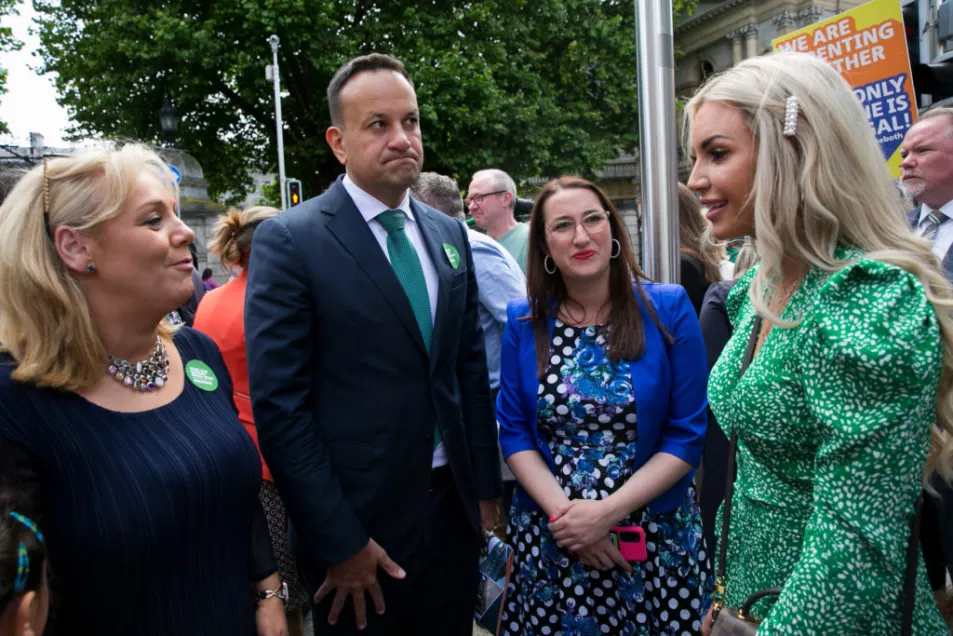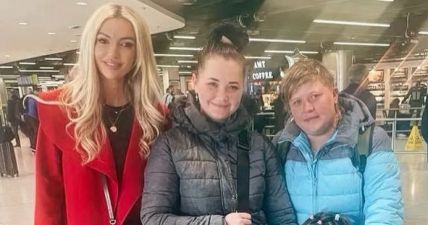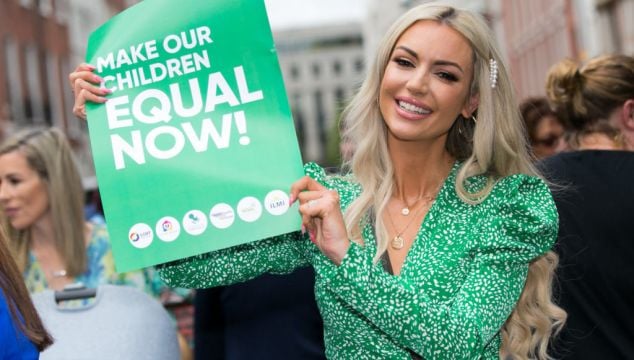Former Miss World Rosanna Davison has called new recommendations for legislation to recognise international surrogacy in Irish law "historic".
Ms Davison joined other parents of children born through surrogacy at a gathering outside Leinster House to mark the recommendations from the Committee on International Surrogacy.
Surrogacy in Ireland is currently unregulated.
This means that Irish children who are born through surrogacy to either opposite sex couples, same sex couples or couples/individuals who have medical and/or fertility challenges have no legal relationship with their parents once they arrive home to Ireland.
To be granted parental rights, the child's genetic father must complete a costly, long court process which can often leave the child legally vulnerable for years.
The child's mother or non-biological parent currently has no pathway to parenthood and is a legal stranger to their child.
However, the committee will recommend that a parental order system should be used to transfer parentage from the surrogate to the intended parents in international surrogacies.

Ms Davison and her husband Wes Quirke welcomed daughter Sophia via gestational surrogate in 2019.
Ms Davison gave birth to twin boys Hugo and Oscar in October 2020.

She has spoken about her fertility problems on a number of occasions, along with the lack of legislation around surrogacy in Ireland.
"It has been an emotional, exciting day for my own family and hundreds of families across Ireland with children born through surrogacy," she wrote in an Instagram post.
"This morning, the Final Report of the Joint Committee on International Surrogacy was published. It’s a robust, inclusive and comprehensive set of recommendations and another step closer to legislating for Irish domestic, international and retrospective surrogacy. Everything we had hoped for as campaigners is in there.
"This has always been about equality, protecting children like my daughter Sophia and not leaving Irish citizens legally vulnerable and left out. I’m so grateful to our government, the Joint Oireachtas Committee and everyone who has worked so hard to get it to this stage. Together, we are changing history."







